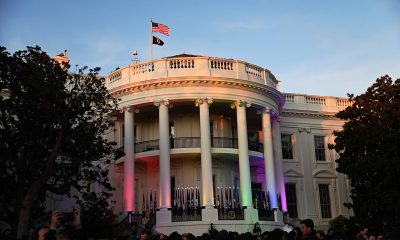Arts & Entertainment
2014 YEAR IN REVIEW: Film
‘Stranger,’ ‘Imitation Game’ and indie fare among year’s best
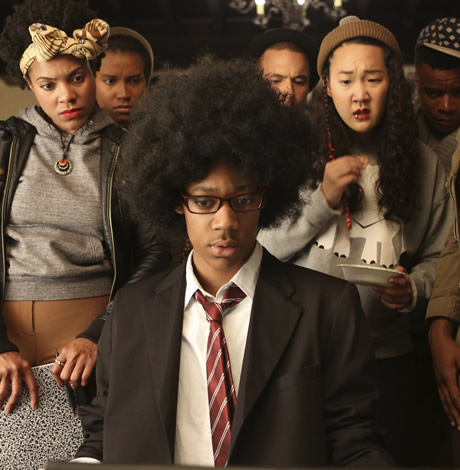
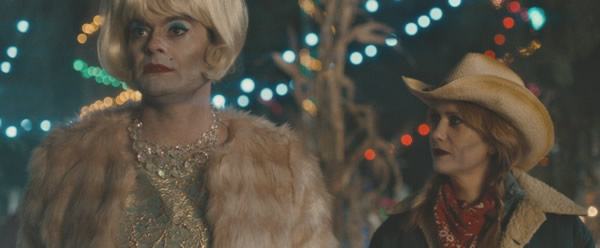
Bill Hader and Kristen Wiig in ‘The Skeleton Twins.’ (Courtesy Roadside Attractions)
There were strong feature films (both mainstream and indie releases), fascinating documentaries and several supportive venues and festivals in Washington that are slowly growing a queer film culture here making 2014, overall, an excellent year in film.
One of the best releases was one of the first — “Stranger by the Lake.” This award-winning French film was billed as an erotic gay thriller and it lived up to that description. The action unfolds on the banks of a lake where men meet for sex, which is shown in graphic detail. The thriller starts when the seemingly innocent Franck watches Michel swim out into a lake with a man and swim back to shore alone. Director Alain Guiraudie skillfully captures the mundane yet thrilling rituals of cruising and the inscrutable passion that arises between Franck and Michel.
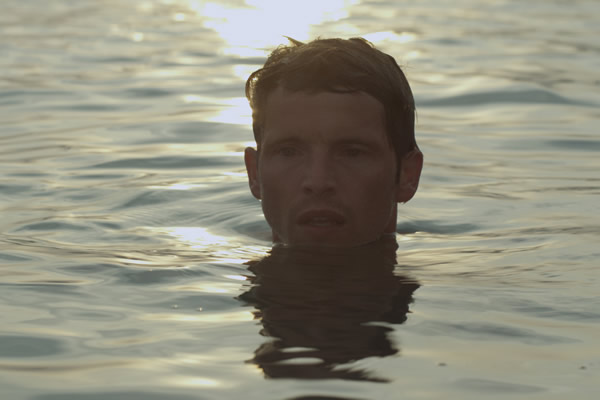
Pierre Deladonchamps in ‘Stranger by the Lake.’ (Photo courtesy Strand Releasing)
Other highlights included:
- • “Calvary” opens when Father James (Brendan Gleeson) is threatened with death by an unseen man in the confessional who was sexually molested by a priest when he was a boy. Among the suspects are a hypocritical closeted detective and a Hollywood-obsessed gay hustler who has also been the victim of clerical sexual abuse.
- • Based on a true story, “Pride” tells the tale of an unlikely alliance between gay and lesbian activists from London and striking Welsh coal miners. While the screenplay relies a little too heavily on well-worn plot devices, the movie is an infectious and uplifting tale of personal growth and political solidarity.
- • Written and directed by talented newcomer Julien Simien, “Dear White People” looks at the lives of four black students who get drawn into a racial incident at a predominantly white college. One of them is Lionel Higgins (Tyler James Williams), an undergraduate journalist who doesn’t fit in with either the gay or African-American student groups. Simien’s groundbreaking film marks the first time that a gay character has been featured in a predominantly African-American movie.
- • “The Skeleton Twins” stars “Saturday Night Live” alumni Kristen Wiig and Bill Hader as estranged twins who are reunited after his suicide attempt. He returns to their hometown to recover and to reignite an affair with his high school English teacher (Ty Burrell) while she tries to work out her marriage to Luke Wilson. Both Wiig and Hader turn in strong nuanced performances and Hader’s scenes in drag are wonderful.
- • “Hector and the Search for Happiness” stars Simon Pegg as a bored psychiatrist who travels the globe to find the secret of happiness. One of his tour guides is an old friend who has found happiness by coming out of the closet.
- • Though technically a made-for-TV movie, “The Normal Heart” debuted in May on HBO and was a widely lauded adaptation of Larry Kramer’s legendary AIDS-themed play of the same name.
- • “The Way He Looks” is a charming Brazilian coming-of-age tale about Leo, a blind teenager who’s trying to escape from his overprotective mother. Leo befriends Gabriel, the new kid in town, and feelings begin to flicker between the two boys, much to the dismay of Leo’s best friend, Giovanna.
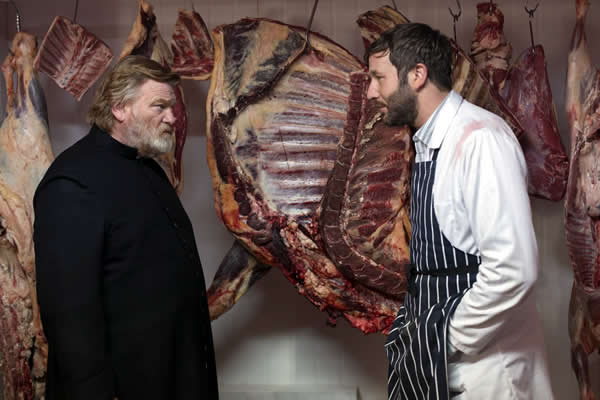
Brendan Gleeson, left, and Chris O’Dowd in ‘Calvary.’ (Photo courtesy Fox Searchlight)
While it didn’t include any LGBT content, one of the most progressive and thought-provoking movies of 2014 was “Belle,” a beautifully filmed movie about a mixed-race heiress being raised by her aristocratic uncle in eighteenth-century England. Director Amma Asante and a knockout ensemble cast tackle complex themes of race, class and gender and tell a moving story that combines intimate details and epic historical sweep.
The year in LGBT feature films came to a dramatic conclusion with “The Imitation Game,” the story of Alan Turing (Benedict Cumberbatch), the gay British mathematician who broke the German Enigma code during World War II but was later prosecuted for his homosexuality.
It was also a great year for LGBT-themed documentaries. One of the most notable was HBO’s “The Case Against 8,” which followed two California couples who brought their fight for marriage equality to the U.S. Supreme Court.
Other standout documentaries included “Shoot Me,” an incisive portrait of the legendary actress Elaine Stritch who passed away earlier this year; “Campaign of Hate: Russia and Gay Propaganda,” a searing examination of the spread of anti-gay sentiment and legislation in Russia; and, “Through a Lens Darkly,” a fascinating exploration of how photography has shaped the African-American community, including LGBT people of color.
There were, of course, a few disappointments. The highly anticipated “Love is Strange” starred John Lithgow and Alfred Molina as long-term partners whose lives fall apart when they lose their rent-controlled Manhattan apartment. Luminous performances from Lithgow and Molina could not overcome Ira Sachs’s implausible script and slack direction. Jennifer M. Kroot’s “To Be Takei” failed to create a cohesive portrait of the actor and activist, and in “Citizenfour” lesbian filmmaker Laura Portras and gay journalist Glen Greenwald failed to fully question the actions of NSA whistle-blower Edward Snowden.
The emerging queer cinema scene in D.C. has been strongly supported by a number of marvelous venues and film festivals. The Landmark Theatres (on E Street in downtown D.C. and on Bethesda Row in downtown Bethesda) and the West Ed Cinema in Foggy Bottom frequently present LGBT movies, as does the newer Angelika Film Center Mosaic in Fairfax. AFI Silver in downtown Silver Spring often features LGBT works in its delightfully eclectic mix of contemporary independent releases and classics from Hollywood and international cinema.
The acclaimed D.C. Shorts Film Festival, headed by openly gay filmmaker Jon Gann, always includes strong LGBT programming, as does AFI Docs, which will now be headed by Michael Lumpkin, who served for more than 25 years as both executive director of Frameline and Festival Director for the San Francisco International LGBT Film Festival. LGBT films have also been featured at the new Middleburg (Virginia) Film Festival.
With sponsorship from the D.C. Center for the LGBT Community, Human Rights Campaign and the Washington Blade, Reel Affirmations has returned to offer monthly move nights and other film events.
The early winter months of 2015 give LGBT cinephiles in D.C .the chance to watch some of 2014’s best releases on DVD and to anticipate the exciting releases of 2015.
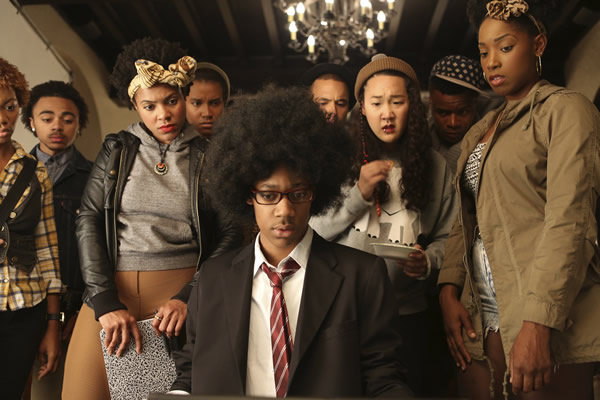
Tyler James Williams, center, in a scene from ‘Dear White People.’ (Photo by Ashley Nyugn; courtesy Roadside Attractions)
Theater
‘Bad Books’ a timely look at censorship in local library
Influencer vs. conservative parent in Round House production

‘Bad Books’
Through May 4
Round House Theatre
4545 East-West Highway
Bethesda, Md.
Tickets start at $43
Roundhousetheatre.org
While a library might seem an unlikely place for a heated contretemps, it’s exactly the spot where adults go when they’re itching to battle out what books minors might be allowed to read.
In Sharyn Rothstein’s “Bad Books,” two women, The Mother (out actor Holly Twyford) and The Librarian (Kate Eastwood Norris), swiftly become mired in a quarrel that comes with some weighty repercussions.
The Mother is a popular conservative influencer on a mission. She’s furious that the local library has overstepped its bounds and she blames The Librarian, a woman who adheres to the “it takes a village” method of child rearing and is dedicated to the young people who approach her reference desk.
There’s some background. It seems The Librarian who dresses young (tight jackets and Doc Martens) and curses a blue streak, forged a friendship with Jeremy, a teenage library regular.
While the details are a bit hazy, it seems the troubled Jeremy confided in The Librarian regarding some personal issues. In return, she suggested a helpful book – Boob Juice.
Unsurprisingly, based solely on its title, the book has thrown The Mother into a pique of outrage. After finding Boob Juice in her son’s bedroom, she made a beeline to the library; and not incidentally, The Mother hasn’t read the recommended work and has no plans to do so.
Set in a suburb with lax gun laws, the story explores facets of division and conciliation. The Mother insists she isn’t so much about banning books as she is keeping some books away from young people until they’ve obtained parental approval.
“Bad Books” is performed in the round. Built on a rotating stage, Meghan Raham’s set is simple, pleasingly serviceable, and easily transforms from the library into a small corporate office, and later the assembly room of a church. Overhead floats a circular glass shelf filled with a cache of banned books. Things like a rolling book cart and a goldfish bowl add some flavor to the different locations.
The Mother wasn’t always a popular conservative warrior with an enthusiastic horde of followers.
Her past includes penning a book that later filled her with guilt and regret. She refers to that early questionable literary accomplishment as her bad book. And while over the years, she has persevered to find and destroy each and every printed copy, she hasn’t entirely succeeded.
Norris plays three women who figure meaningfully into the arc of Twyford’s mother character. In addition to The Librarian, Norris is The Manager, a broadly played piece of comic relief, and The Editor, a warm woman who reveals things about Jeremy that his own mother never knew.
Smartly staged by Ryan Rilette, the production is part of a National New Play Network Rolling World Premiere. While Rothstein’s script offers two strong roles (skillfully performed by celebrated actors Twyford and Norris), its ending feels too neatly resolved.
In the past, Twyford and Norris have successfully joined forces for numerous DMV productions including Studio Theatre’s production of David Auburn’s two-hander “Summer, 1976,” the story of a longtime and unlikely friendship between two women who meet as young mothers during the Bicentennial summer.
Though different, both The Librarian and The Mother share a strong and ultimately hopeful relationship with words.
There’s a quote from E.B. White’s classic “Charlotte’s Web” that pops up a couple of times in the briskly paced 80-minute play. Charlotte, the wise spider, says, “with just the right words you can change the world.”
Books
‘Pronoun Trouble’ reminds us that punctuation matters
‘They’ has been a shape-shifter for more than 700 years

‘Pronoun Trouble’
By John McWhorter
c.2025, Avery
$28/240 pages
Punctuation matters.
It’s tempting to skip a period at the end of a sentence Tempting to overuse exclamation points!!! very tempting to MeSs with capital letters. Dont use apostrophes. Ask a question and ignore the proper punctuation commas or question marks because seriously who cares. So guess what? Someone does, punctuation really matters, and as you’ll see in “Pronoun Trouble” by John McWhorter, so do other parts of our language.

Conversation is an odd thing. It’s spontaneous, it ebbs and flows, and it’s often inferred. Take, for instance, if you talk about him. Chances are, everyone in the conversation knows who him is. Or he. That guy there.
That’s the handy part about pronouns. Says McWhorter, pronouns “function as shorthand” for whomever we’re discussing or referring to. They’re “part of our hardwiring,” they’re found in all languages, and they’ve been around for centuries.
And, yes, pronouns are fluid.
For example, there’s the first-person pronoun, I as in me and there we go again. The singular I solely affects what comes afterward. You say “he-she IS,” and “they-you ARE” but I am. From “Black English,” I has also morphed into the perfectly acceptable Ima, shorthand for “I am going to.” Mind blown.
If you love Shakespeare, you may’ve noticed that he uses both thou and you in his plays. The former was once left to commoners and lower classes, while the latter was for people of high status or less formal situations. From you, we get y’all, yeet, ya, you-uns, and yinz. We also get “you guys,” which may have nothing to do with guys.
We and us are warmer in tone because of the inclusion implied. She is often casually used to imply cars, boats, and – warmly or not – gay men, in certain settings. It “lacks personhood,” and to use it in reference to a human is “barbarity.”
And yes, though it can sometimes be confusing to modern speakers, the singular word “they” has been a “shape-shifter” for more than 700 years.
Your high school English teacher would be proud of you, if you pick up “Pronoun Trouble.” Sadly, though, you might need her again to make sense of big parts of this book: What you’ll find here is a delightful romp through language, but it’s also very erudite.
Author John McWhorter invites readers along to conjugate verbs, and doing so will take you back to ancient literature, on a fascinating journey that’s perfect for word nerds and anyone who loves language. You’ll likely find a bit of controversy here or there on various entries, but you’ll also find humor and pop culture, an explanation for why zie never took off, and assurance that the whole flap over strictly-gendered pronouns is nothing but overblown protestation. Readers who have opinions will like that.
Still, if you just want the pronoun you want, a little between-the-lines looking is necessary here, so beware. “Pronoun Trouble” is perfect for linguists, writers, and those who love to play with words but for most readers, it’s a different kind of book, period.
The Blade may receive commissions from qualifying purchases made via this post.

Friday, April 18
“Center Aging Friday Tea Time” will be at 2 p.m. on Zoom. This is a social hour for older LGBTQ+ adults. Guests are encouraged to bring a beverage of choice. For more details, email [email protected].
Go Gay DC will host “LGBTQ+ Community Social in the City” at 7 p.m. at Hotel Zena. This event is ideal for making new friends, professional networking, idea-sharing, and community building. This event is free and more details are available on Eventbrite.
Trans and Genderqueer Game Night will be at 6 p.m. at the DC Center for the LGBT Community. This will be a relaxing, laid-back evening of games and fun. All are welcome and there’ll be card and board games on hand. Feel free to bring your own games to share. For more details, visit the DC Center’s website.
Saturday, April 19
Go Gay DC will host “LGBTQ+ Community Brunch” at 11 a.m. at Freddie’s Beach Bar & Restaurant. This fun weekly event brings the DMV area LGBTQ+ community, including Allies, together for delicious food and conversation. Attendance is free and more details are available on Eventbrite.
LGBTQ People of Color Support Group will be at 7 p.m. on Zoom. This peer support group is an outlet for LGBTQ People of Color to come together and talk about anything affecting them in a space that strives to be safe and judgement free. There are all sorts of activities like watching movies, poetry events, storytelling, and just hanging out with others. For more information and events for LGBTQ People of Color, visit thedccenter.org/poc or facebook.com/centerpoc.
“Spark Sapphic Social” will be at 8 p.m. at Spark Social House. This weekly sapphic social is an opportunity to mix and mingle with other sapphics in D.C.’s newest LGBTQ bar. This event is free and more details are available on Eventbrite.
“DC Drag Brunch on Rooftop – Penthouse (Formerly at Lima Twist)” will be at 12 p.m. at Baby Shank Rooftop. Hosted by Miss Capital Pride, this is the ultimate drag brunch experience in Washington, D.C., featuring the fiercest queens around. Prepare to be entertained by glamorous drag queens and celebrated celebrity impersonators, including Taylor Swift, Lady Gaga, Beyoncé, Britney Spears, Nicki Minaj, Ariana Grande, Whitney Houston, Cher and many more. Tickets cost $27 and are available on Eventbrite.
Sunday, April 20
Queer Crayon Club will host “Queer Sketch Social” at 3 p.m. at Sinners and Saints. This is a fun event for LGBTQ+ adults to come together and color. Attendance is free and more details are available on Eventbrite.
Monday, April 21
“Center Aging Monday Coffee & Conversation” will be at 10 a.m. on Zoom. This is a social hour for older LGBTQ+ adults. Guests are encouraged to bring a beverage of choice. For more details, email [email protected].
Tuesday, April 22
Genderqueer DC will be at 7 p.m. on Zoom. This support group is for people who identify outside of the gender binary. Whether you’re bigender, agender, genderfluid, or just know that you’re not 100% cis – this is your group. For more details, visit www.genderqueerdc.org or Facebook.
Coming Out Discussion Group will be at 7 p.m. on Zoom. This is a peer-facilitated discussion group and a safe space to share experiences about coming out and discuss topics as it relates to doing so. For more details, visit the group’s Facebook.
Wednesday, April 23
Job Club will be at 6 p.m. on Zoom. This is a weekly job support program to help job entrants and seekers, including the long-term unemployed, improve self-confidence, motivation, resilience and productivity for effective job searches and networking — allowing participants to move away from being merely “applicants” toward being “candidates.” For more information, email [email protected] or visit thedccenter.org/careers.
Asexual and Aromantic Discussion Group will be at 7 p.m. on Zoom. This is a space where people who are questioning this aspect of their identity or those who identify as asexual and/or aromantic can come together, share stories and experiences, and discuss various topics. For more details, email [email protected].
Thursday, April 24
Virtual Yoga with Sarah M. will be at 7 p.m. on Zoom. This is a free weekly class focusing on yoga, breath work, and meditation. For more details, visit the DC Center for the LGBT Community’s website.
DC Anti-Violence Project Open Meeting will be at 7 p.m. on Zoom. This meeting is open to anyone interested in learning more and getting involved in lessening violence both within and directed towards the LGBT communities. For more information, visit Facebook or Twitter.
-

 El Salvador5 days ago
El Salvador5 days agoGay Venezuelan makeup artist remains in El Salvador mega prison
-

 State Department3 days ago
State Department3 days agoHIV/AIDS activists protest at State Department, demand full PEPFAR funding restoration
-

 Brazil4 days ago
Brazil4 days agoUS lists transgender Brazilian congresswoman’s gender as ‘male’ on visa
-

 District of Columbia5 days ago
District of Columbia5 days agoTwo charged with assaulting, robbing gay man at D.C. CVS store





